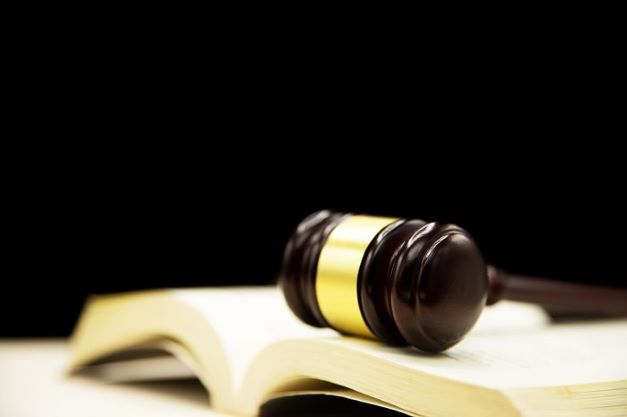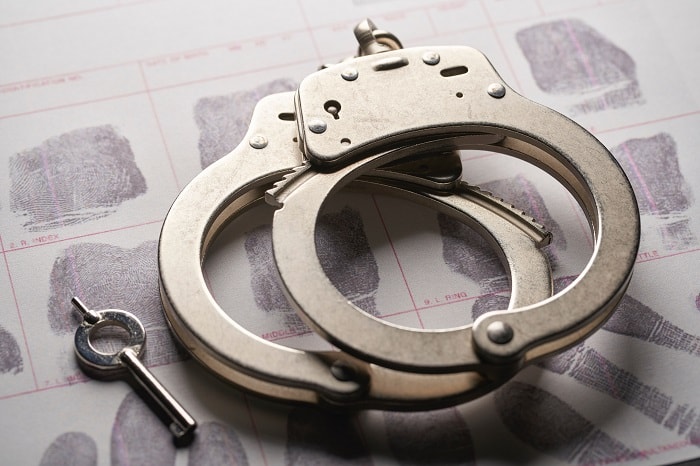Drug possession in California can lead to jail sentences and other penalties. The actual consequences depend on many factors, such as the type of drug in question, your intentions with it, quantity, etc. If you’d like to learn more about the possession of a controlled substance and subsequent consequences under California drug laws, check out the article below!
What Is a Controlled Substance?
The term[1] controlled substance refers to a drug whose use is regulated by the law. Some substances, such as heroin and cocaine, are illegal in all situations. Others require a prescription[2], such as oxycodone and morphine.
The reason why the use of these chemicals and drugs is under strict government monitoring is potential addiction and abuse. If you are charged with possession of a controlled substance, don’t hesitate to contact our attorneys. Our team has extensive experience and expertise in dealing with drug crimes, which can help build the best defense for your case.
What Is Possession of a Controlled Substance?
According to California drug laws, there are two different possessions. The first one is simple possession, which indicates you had the drug for personal use. Your charges could also indicate possession with intent to sell, which implies you planned to sell the substance.
If a police officer finds you with a drug listed among the Schedule drugs[3], you’ll probably be charged with possession of a controlled substance. Simple possession could be an infraction, which means a fine is the only possible penalty. If they classify it as a misdemeanor, it could be up to a year of jail time and a fine. Depending on the substance quantity, type, and prior convictions, substance possession could be a felony[4].
If you get those charges, make sure to contact a drug crimes lawyer. A professional attorney will identify a solid defense for your case and help get the best out of the entire situation. The severest penalties for the drug possession charges California has are related to transporting and possessing a controlled substance with the intention of selling it. If you moved the drug across at least two counties, the maximum sentence is up to nine years in jail.
How Does California Classify Controlled Substances?
The United States has a Controlled Substances Act[5] on a federal level. However, the states also have the right to create lists of Schedule drugs.
According to the California Health and Safety Code, you’ll find five categories of scheduled substances:
- Schedule I [6]. There’s no medical use for these drugs, and they come with a dangerous risk of abuse and addiction. The list includes heroin, LSD, PCP, ecstasy, and other opiates and hallucinogens. Although marijuana is in this group, lawmakers will likely remove it soon.
- Schedule II. Amphetamine and methamphetamine, as well as their precursors, are in this group [7]. You’ll also find Vicodin and morphine, which can be bought with a prescription.
- Schedule III [8]. The Schedule 3 drugs have some medical use but also a moderate risk of abuse and addiction. They include ketamine, testosterone, dronabinol, etc.
- Schedule IV. Xanax is a controlled substance in this group, as well as valium and phentermine. The medical community approves using these drugs, but only with a prescription.
- Schedule V. These have the lowest abuse and addiction risk and wide use in the medical community. Motofen, Lomotil, and even some cough medications are in this group.
What Are the Penalties for Drug Possession in California?
The penalties vary on the type and quantity of the drug, your intent with it, and other aggravating circumstances. For example, the penalty for possession of drug paraphernalia in California could be up to six months of jail time. You might be eligible for a diversion program[9] depending on your specific case.
Penalties for Possession of a Controlled Substance
The only way you could legally have a controlled substance on you is if you have a valid prescription and the amount within the specified range. Otherwise, you could be facing a charge for drug possession under the California drug laws.
Depending on the details, you could be facing charges for the following:
- Actual possession. It happens when you have the drug on you. The police often find it in someone’s pockets or even shoes.
- Constructive possession. You were driving your car and had the drug in the compartment by the passenger’s seat. That means you exercised control over it and could access it easily. The same applies to keeping the drug in a gym locker. If it’s reasonable to assume it’s yours, you could face charges for constructive possession[10].
- Joint possession. It happens if multiple persons have access to the drug. For example, joint possession of drugs occurs at parties or when two people are driving in a car. If nobody wants to admit the drug is theirs, everyone involved gets a joint possession charge.
Penalties for Possession of Marijuana
You can legally possess up to 28.5 grams[11] for recreational use in the State of California. The only condition is that you need to be at least 21 years old. It’s also unlawful to possess marijuana on K-12 school grounds[12] while classes are in session.
Depending on the offense, possessing marijuana could be an infraction or misdemeanor[13]. The fines range from $100 to $500, and other penalties include community service, drug counseling, and jail time.
Possession of Concentrated Cannabis
According to California drug possession laws, you can legally possess up to eight grams of cannabis concentrate for recreational use[14]. But if you use medical marijuana, you aren’t subject to this limit. So you don’t have to worry about the quantity you have on you, but it’s important you have a valid prescription.
If you are a recreational user with more than eight grams of concentrated cannabis on you, that qualifies as a misdemeanor. The law states you can get a $500 fine and six months of jail time.
If you had concentrated cannabis with intent to sell it, it’s still a misdemeanor[15].
However, the offense could be upgraded to a felony on these grounds:
- You had at least two prior misdemeanors for a similar crime.
- The buyer for the cannabis you wanted to sell is less than 18 years old.
- You have a prior conviction for a sex crime, violent, or another serious felony.
Is Drug Possession a Felony in California?
Drug possession could be an infraction, misdemeanor, or felony.
The charge you’ll be facing depends on many factors, including:
- Substance type. If you were caught with a Schedule 1 drug, it increases the odds of receiving a felony charge.
- Drug quantity. The acceptable limits vary on the substance. But it’s not only about going above the lawful limit but how far you go. Possession of a controlled substance in a large quantity has more chances of ending up as a felony than owning only a small amount of the drug.
- An intention to sell the drugs. The lawmakers could see that as a danger to the community. Depending on the amount, you could face drug trafficking charges[16].
- Other circumstances. If you were resisting an arrest or committed a violent crime[17], it could worsen your situation.
How Long Do You Go to Jail for Drug Possession?
If you face a misdemeanor, the maximum punishment is 12 months in jail. For possession of marijuana, the offense is punishable by up to six months of jail time. Juvenile drug possession California charges could only be for an infraction. Defendants under 18 will probably face a $100 fine, community service, and drug counseling.
It’s only if you committed a felony that you can get a bigger jail punishment than 12 months. Prior convictions[18] could make your next charge a felony. Alternatively, an intent to sell the drug leads to higher sentences. Finally, transporting a controlled substance is a felony. You could face up to five years in a state prison only for that offense.
What Is Proposition 47?
The voters passed the Proposition 47 referendum in 2014. Some call it the Safe Neighborhoods and Schools Act, and its main idea was to re-qualify some non-violent criminal acts. From then, crimes that don’t involve violence aren’t a felony but a misdemeanor[19].
Since possession of a controlled substance is a non-violent crime, the Health and Safety Code considers it a misdemeanor. That means you can’t get more than a year in county jail. However, the misdemeanor benefits don’t apply if you had prior offenses similar to your latest one. If you are registered as a sex offender, you could end up with felony charges instead of a misdemeanor. It helps to have an experienced criminal defense lawyer in your corner if that happens. Don’t hesitate to contact our office and schedule an appointment to discuss your case.
Ban on Synthetic Cannabinoids
Near the end of 2016, the legislature passed[20] a law banning the possession and sale of all synthetic cannabinoids (such as the popular drug “Spice”).
Penalties for possession for personal use are:
- First Offense: An infraction for the first offense ($250 fine)
- Second Offense: An infraction or misdemeanor for the second offense ($500 and/or six months in jail)
- Subsequent Offenses: A misdemeanor for subsequent offenses ($1,000 and/or 6 months in jail)
Additionally, the court has the authority to divert some defendants to a drug treatment program[21] in lieu of criminal charges. The sale or distribution of synthetic cannabinoids is classified as a misdemeanor subject to $1,000 fines and/or six months in jail.
Enhanced Penalties for Possession of Date-Rape Drugs
California also added a law[22] that raised the level of the crime for possession of drugs commonly associated with date-rape cases (e.g., ketamine, GHB, and Rohypnol) from a misdemeanor to a felony. There must be evidence of an intent to commit sexual assault to elevate the offense, and the new sentencing guidelines impose jail time for 16 months or two to three years.
How to Get Drug Possession Charges Dropped?
The defense will depend on your specific case. Your lawyer will assess the Health and Safety Code 11350(a) HS [23], which makes it illegal to possess a controlled substance in California. After gathering the details, they could go with these defense options:
- The drug wasn’t yours. If it’s an option to claim the drug was someone else’s, this could be your defense.
- You didn’t have control over it. It’s a frequent defense in cases of constructive and joint possession.
- You had a valid prescription. If it’s not possible to prove you didn’t have a prescription, you could get the charges dropped on these grounds.
- The drug search and seizure was illegal. If the police didn’t follow relevant procedures[24], the case would be dropped.
- You didn’t know the drug was there. This approach might help to lower your sentence, but it rarely gets the charges dropped.
It’s vital to identify your best options against drug felony charges. That’s why you need an experienced lawyer with drug crime expertise. Our defense attorneys will listen to you carefully and analyze all details before building a case. That will ensure you have the best defense and odds of getting a positive outcome from the process.
Feel free to get in touch and schedule an appointment with our professional defense lawyers!
References
-
What is a controlled substance? (2023, October 6). Environment, Health & Safety. https://ehs.ucla.edu/what-controlled-substance-0
-
Manshoory, S. (2021, January 22). Possession of prescription drugs in California. Manshoory Law Group, APC. https://manshoorylaw.com/blog/how-to-avoid-jail-time-in-california-after-an-arrest-for-unlawful-possession-of-prescription-medications/
-
Manshoory, S. (2019, July 11). Federal Drug scheduling System and classifications. Manshoory Law Group, APC. https://manshoorylaw.com/blog/federal-drug-scheduling-system/
-
Manshoory Law Group, APC. (2022, January 17). Misdemeanor and felony possible consequences | Manshoory Law. https://manshoorylaw.com/misdemeanor-and-felony-consequences/
-
The Controlled Substances Act. (n.d.). DEA. https://www.dea.gov/drug-information/csa
-
Manshoory, S. (2022, January 18). What is a schedule 1 drug? Manshoory Law Group, APC. https://manshoorylaw.com/blog/what-is-a-schedule-1-drug/
-
Preuss, C. V., Kalava, A., & King, K. C. (2023, April 29). Prescription of controlled substances: benefits and risks. StatPearls – NCBI Bookshelf. https://www.ncbi.nlm.nih.gov/books/NBK537318/
-
Manshoory, S. (2020, January 30). Schedule 3 Drugs: charges, penalties and defense. Manshoory Law Group, APC. https://manshoorylaw.com/blog/schedule-3-drug-charges/
-
Manshoory, S. (2019, July 29). New diversion program for criminals in California. Manshoory Law Group, APC. https://manshoorylaw.com/blog/new-diversion-program-for-criminals-in-california/
-
constructive possession. (n.d.). LII / Legal Information Institute. https://www.law.cornell.edu/wex/constructive_possession
-
California Code, HSC 11357. (n.d.). https://leginfo.legislature.ca.gov/faces/codes_displaySection.xhtml?lawCode=HSC§ionNum=11357.
- Office of Non-Public Education. (2009). State regulation of private schools. U.S. Department of Education. https://www.ed.gov/sites/ed/files/admins/comm/choice/regprivschl/regprivschl.pdf
-
Parker, D. (2024, March 7). Infraction vs Misdemeanor: What’s The Difference? | Manshoory Law. Manshoory Law Group, APC. https://manshoorylaw.com/blog/infraction-vs-misdemeanor/
-
Department of Cannabis Control – State of California. (n.d.). California’s cannabis laws. Department of Cannabis Control. https://cannabis.ca.gov/cannabis-laws/laws-and-regulations/
- Manshoory, S. (2016, December 19). Misdemeanor, felony and “Wobbler” offenses in California. Manshoory Law Group, APC. https://manshoorylaw.com/blog/misdemeanor-felony-and-wobbler-offenses-in-california/
- Manshoory, S. (2022, January 27). Can a plea deal turn a drug trafficking charge into a simple possession charge? Manshoory Law Group, APC. https://manshoorylaw.com/blog/can-a-plea-deal-turn-a-drug-trafficking-charge-into-a-simple-possession-charge/
- Manshoory, S. (2022, December 16). What would be considered a violent crime in California? Manshoory Law Group, APC. https://manshoorylaw.com/blog/violent-crimes-in-california/
- Manshoory, S. (2017, February 13). How do my prior convictions affect my current case? | Manshoory Law. Manshoory Law Group, APC. https://manshoorylaw.com/blog/the-impact-of-past-convictions-on-current-prosecutions/
- Manshoory, S. (2021, January 27). How to reduce felony to misdemeanor in California: Prop 47. Manshoory Law Group, APC. https://manshoorylaw.com/blog/prop-47-could-reduce-your-sentence-after-a-california-theft-charge/
- Synthetic Drugs (a.k.a. K2, Spice, Bath Salts, etc.). (n.d.). The White House. https://obamawhitehouse.archives.gov/ondcp/ondcp-fact-sheets/synthetic-drugs-k2-spice-bath-salts
- Manshoory, S. (2022, February 22). What is Court-Ordered Rehab, and how does it work? Manshoory Law Group, APC. https://manshoorylaw.com/blog/what-is-court-ordered-rehab/
- Lackey. (n.d.). AB 46 Assembly Bill – Bill analysis. http://leginfo.ca.gov/pub/15-16/bill/asm/ab_0001-0050/ab_46_cfa_20150413_092522_asm_comm.html
-
California Code, HSC 11350. (n.d.). https://leginfo.legislature.ca.gov/faces/codes_displaySection.xhtml?lawCode=HSC§ionNum=11350
-
Manshoory, S. (2019, June 20). California search and seizure laws. Manshoory Law Group, APC. https://manshoorylaw.com/blog/california-search-and-seizure-laws/





